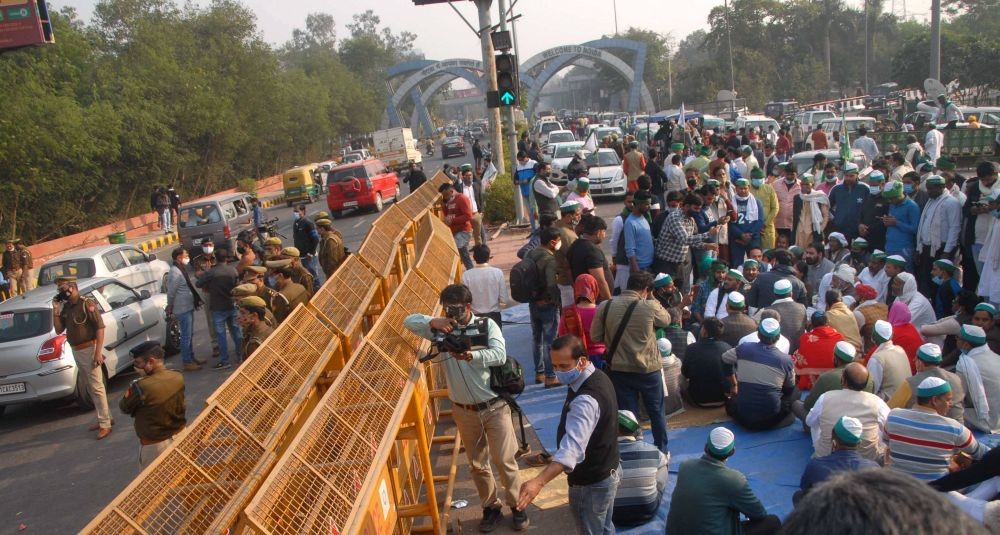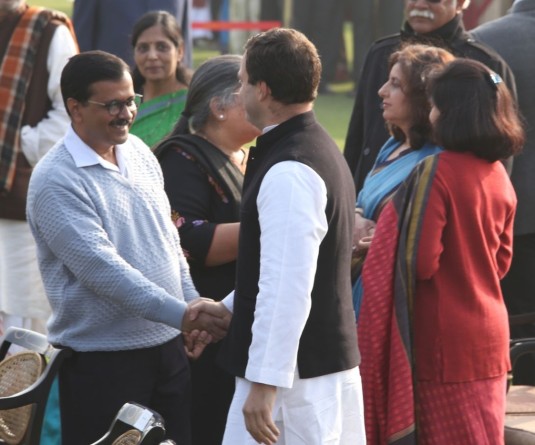Members of Bharatiya Kisan Union during their 'Delhi Chalo' protest march against the Centre's new farm laws, in Noida, Wednesday, Dec. 2, 2020. (PTI Photo)

New Delhi, December 2 (IANS): The Narendra Modi government claims to give minimum support price (MSP)for crops to farmers at one and a half times the costs of production. On the other hand farmers are seeking a guarantee for procurement of crops on the MSP fixed by the government. But the toughest part about giving a guarantee on MSP is that a chunk of the government's budget will go into it. Experts point out that the government will need about Rs 17 lakh crore to procure all crops at the existing MSP.
The central government announces minimum support price (MSP) for 22 crops every year on the recommendation of the Commission for Agricultural Costs and Prices( CACP). Of these, there are 14 kharif crops and six rabi ones. In addition, MSP is also fixed for jute and copra.
However, the government only procures paddy and wheat on a large scale at MSP since the National Food Security Act requires the procurement of both these grains for the Public Distribution System (PDS).
Though the procurement of pulses and oilseeds is also done in the major producing states, it takes place only when the concerned state sends a proposal to the central government in case the market price is less than the MSP. Officials say that the fixation of MSP means that the farmers must get as much for the crop at least. So when the market price of any pulse or oilseeds crop is lower than the MSP, the government agency procures it at MSP from the farmers.
But it is not possible that just the government should buy all the crops from farmers. So when the government buys about one-third of the total production, naturally, the market price comes up. It helps the farmers get remunerative prices. In some states, the government also procures maize and other crops.
Making procurement mandatory at MSP means private traders will also be compelled to buy it at that price. Agricultural economist Vijay Sardana says that if procurement at MSP is made mandatory for the private sector, private business will start importing foodgrains in case they are cheaper in the international market and more expensive here.
If the government has to buy all the crops from the farmers, the government will have to spend Rs. 17 lakh crores at today's MSP, which would be a substantial part of the government's budget, says Sardana.
Apart from this, one lakh crore will be spent on fertiliser subsidy and one lakh crore on food subsidy.
If the government has to buy all the crops, there will be difficulties in storing it as well.
Another difficulty in making MSP mandatory will be to decide as to what will be the MSP for better quality crops and what will be the price of a weaker quality and who will buy it.
To spend Rs 17 lakh crore on procurement of all crops at MSP, says Sardana, the government will have to triple the tax rate which may create road-blocks for investment, as a result employment will not be created. Therefore, the requirement of MSP is an impractical demand.
The agitating farmers are apprehensive about procurement at MSP being discontinued after the new agricultural laws are enforced. Food Secretary Sudhanshu Pandey has said that the government will have to buy foodgrains at MSP as long as the public distribution system exists in the country, so the apprehension is baseless.
He said the new agricultural law brought by the central government will not make any difference in procurement at MSP since MSP is linked to food security.






